Get the top crypto news stories weekly, right here, with Crypto Espresso.

Crypto Wallet Guide: How to Create a Crypto Digital Wallet
September 25, 2022

Crypto Wallet Guide: How to Create a Crypto Digital Wallet
September 25, 2022
Learn How to Secure Your Crypto With Our All-Inclusive Crypto Wallet Guide
How and where do you store crypto? Crypto wallets are the answer. These digital purses are where you will, ideally, store the cryptocurrency you buy, and if you’re playing casino games at Punt, store those big-money crypto wins.
Given that crypto wallets form such an integral part of your crypto experience, from staking coins to engaging with DeFi and NFTs – not to mention depositing cryptos to play online, it’s important to know what variations of crypto wallets there are, the differences between them, and how to set them up.
This crypto wallet guide will break down what kind of crypto wallets are out there and what you can expect when getting started. Now let’s show you how to set one up and fill your newly-created wallet with a whole bunch of crypto payouts at Punt.
What is a Crypto Wallet?
Before we begin with this crypto wallet guide, it’s important to know that your coins are never actually ‘in’ your wallet, not in the same way that cash is. Moreover, when cryptocurrency is sent to you, it is sent to a part of the blockchain that only you can access, with the wallet being the gateway to that specific part.
This means that if you ever lose access to your wallet, or the wallet itself, you haven’t actually lost the coins, merely your access to them – let’s see traditional cash wallets pull THAT on off!
You can simply get a new wallet, import the details, and voila – you have your coins back. It is also important to remember that crypto wallets can hold many different types of cryptos at once.
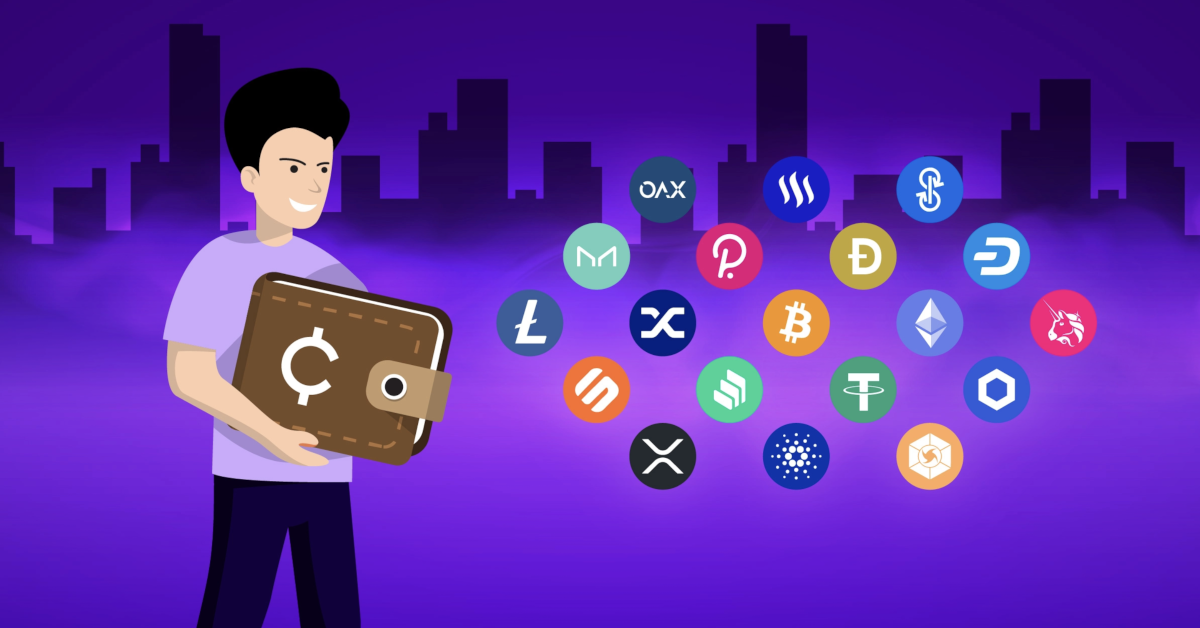
Before we compare crypto wallets, we need to cover some very important terms that define what type of wallets there are.
Types of crypto wallets
There are three main types of crypto wallets – software wallets, paper wallets, and hardware wallets. However, we discourage the use of paper wallets (this ins’t the 90’s anymore) and suggest you go for either a hot wallet or a cold wallet.
Both of these options can be used for online gambling, but it’s important to know the features and characteristics of each. Before we continue, here’s a quick explanation from the top crypto exchange in the world, Binance.
Software wallets / hot wallets
To recap, these crypto wallets take the form of a cryptocurrency wallet app on your phone, computer, or web browser. They are also referred to as ‘hot wallets’ because they are connected to the internet. Software wallets are less secure but more practical than hardware wallets – but don’t get us wrong, for crypto gambling, these will do just fine.
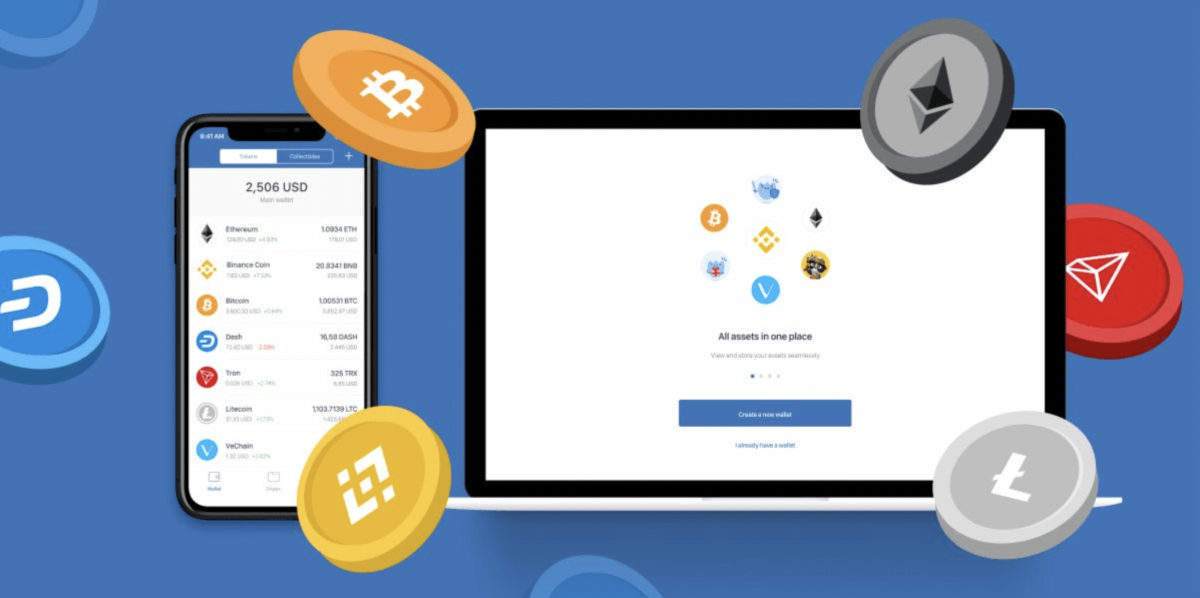
Hardware wallets
These are physical devices, generally in the form of a USB stick, that offer better protection for your assets. This is because they are stored offline and are only connected to the internet when the owner performs a task such as sending coins. To this end, they are also referred to as “cold wallets”, and are less practical but more secure than software wallets.
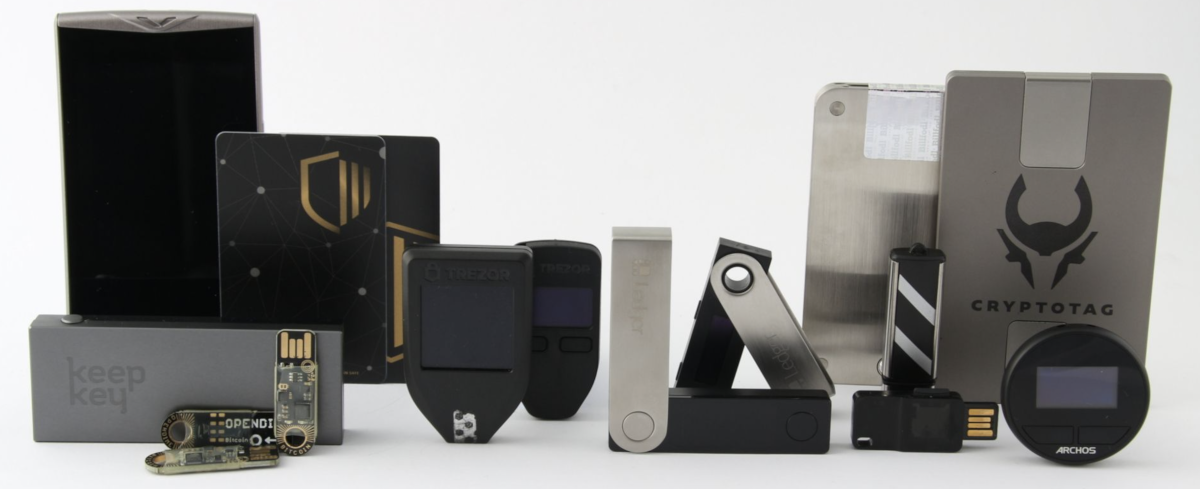
Custodial and non-custodial wallets
Something else you need to know before choosing between the different types of crypto wallets, is how the coins will be stored. Wallets can either be custodial or non-custodial, so let’s take a look.
Custodial wallets
These are wallets where the wallet maker holds your coins in its own pools, commingling them with other customers’ funds and only taking them out again when you want to withdraw them. This is very similar to holding them on an exchange and means that you are relying on the security of the wallet maker as well as your device to protect your coins.
Non-custodial wallets
These wallets allow you full control over your coins. You are given a private key that is essentially a master password to the contents of your wallet, meaning the safety of the coins is entirely down to you.
With those important terms in mind, let’s crack on with our crypto wallet guide and compare crypto wallets.
Software wallets
With software wallets coming in all different shapes and sizes and on multiple platforms, the process for setting them up, in most cases, is slightly different for each type. However, the ethos is broadly the same, so in this crypto wallet guide, we can look at them as a collective.
The most popular type of software wallet these days is a mobile crypto wallet app, with dozens of products available to choose from. Many of them don’t cost anything upfront, essentially giving you a free crypto wallet, although many make the cost back in transaction fees.
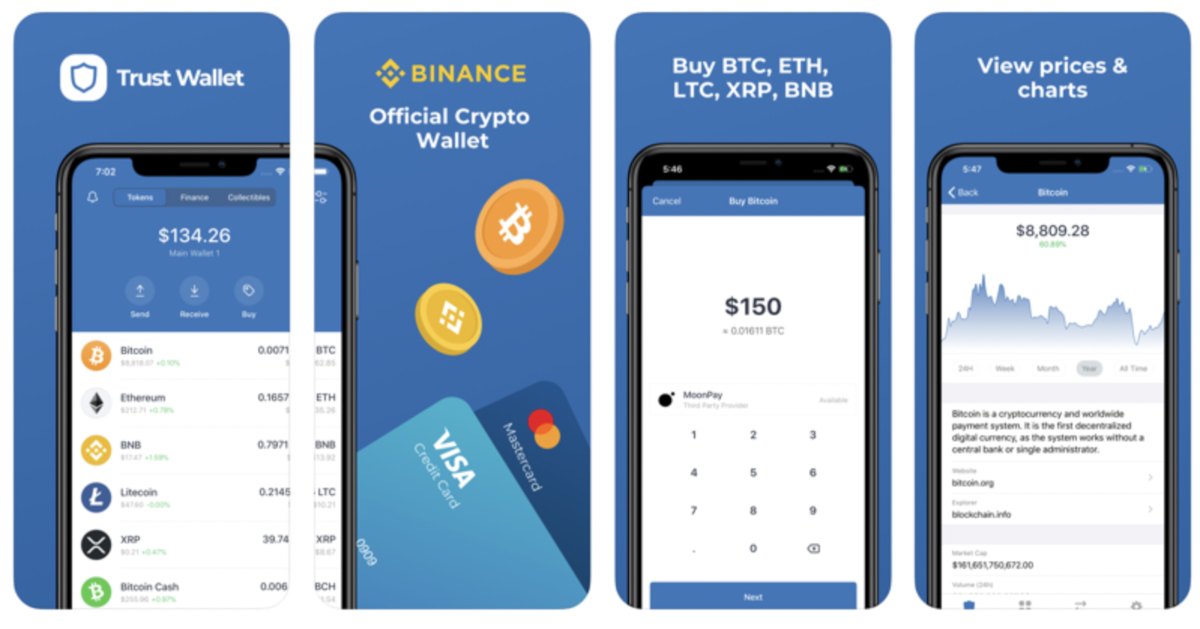
Installing a software wallet
Assuming you have done your research and chosen the right cryptocurrency software wallet suited for your needs, making sure you download the wallet from an official website or your device’s app is important
The first step will be to see if you need to register and prove your identity. Some software wallets, such as NearPay, will need you to register and confirm your identity through a KYC process before you can start using them.
This will begin the moment you run the wallet application, with government-issued identification required as well as a selfie, so be prepared for that.
If you don’t need to register, as is the case with popular software wallets such as Metamask and Trust Wallet, your wallet will be live as soon as you’ve created it. You can then begin sending and receiving coins right away – that means you can make a deposit using our quick and easy deposit window almost instantly at Punt!

Some non-custodial software wallets will supply your private key or a multi-word passphrase which you should definitely write down and keep very safe and secure. Others will produce it if you request it in the app. If you lose your phone, accidentally delete the wallet, or otherwise lose access to it, you can bring the wallet back to life with this magical passphrase code.
Using a software wallet
Receiving your first crypto is very easy with a software wallet. Simply head to the “Account Details” section, find the coin you want to deposit, and hit “Deposit”. This will give you the choice between a long alphanumeric code or a QR code, depending on how you are sending the coins.
Choose the most appropriate sending method for you, follow the instructions on the platform you’re sending from, and the coins will arrive as quickly as the blockchain allows. The process is similar for sending coins – click ‘send’, enter the address or scan the QR code of the recipient, confirm, and away they go.
Securing a software wallet
There aren’t that many steps you can take to keep your cryptocurrency wallet app more secure than it already is. Obviously, you should never reveal your private key or passphrase to anyone, and ensure you have all the protection features the wallet offers (2FA, fingerprint, withdrawal confirmation, etc.). Other than that, a cryptocurrency software wallet is only as secure as the device on which it is installed.
Hardware wallets
A hardware crypto digital wallet takes a little more setting up, and using them takes a little more work. However, they are more secure. In this crypto wallet guide, we’ll cover the process required by the most common types of hardware wallets.
Installing a hardware wallet
Once you have bought and unboxed your hardware wallet, you’ll need to make it ‘live’. The instructions for doing this will be included in the box, and some of the newer models even allow you to carry out the setup online. Older models will require everything to be done on the device initially, using buttons or a touch screen.
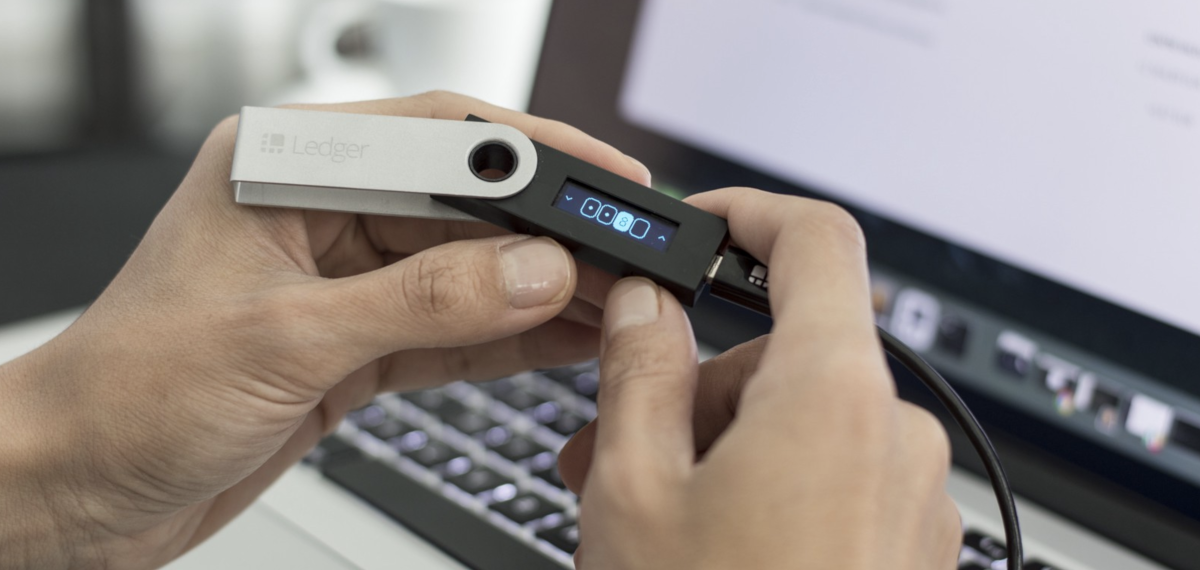
The first step will be to record your private key. Again, note this down and keep it very safe, along with any other passwords you are asked to create. You will be asked to provide the password each time you want to use the device, but NEVER the private key.
No legitimate app, platform, or program, will ever ask for your private key, not even the wallet maker – remember that!
Using a hardware wallet
Once this basic setup is done, you will be asked which coins you wish to send to your wallet. This is because you need to install apps for each coin on the device so you can receive and store them. Thankfully this process is easy and is done online, usually through a dedicated program.
Once you’ve chosen a few coins, the process for depositing is very similar to software wallets – in the program, select ‘deposit’, select the address or QR code, send the funds, and await their arrival.
Sending coins is a little different, and proves why a hardware crypto digital wallet is more secure. Once you enter the address to send your coins, you will have to physically confirm the transaction on the device before the coins will be sent. This is to make sure that coins can’t be sent from your wallet remotely.
Securing a hardware wallet
When you’re not using a hardware wallet, disconnect it from your computer and store it somewhere very safe. Remember, if someone steals your hardware wallet, they can’t use it without the password. They also can’t send any coins from your wallet without having physical access to the device and ensuring that it is connected to the internet.
Conclusion
As this crypto wallet guide has shown, setting up and securing the different types of crypto digital wallets that exist is largely a straightforward process these days, meaning that the only tricky thing is deciding which to use.
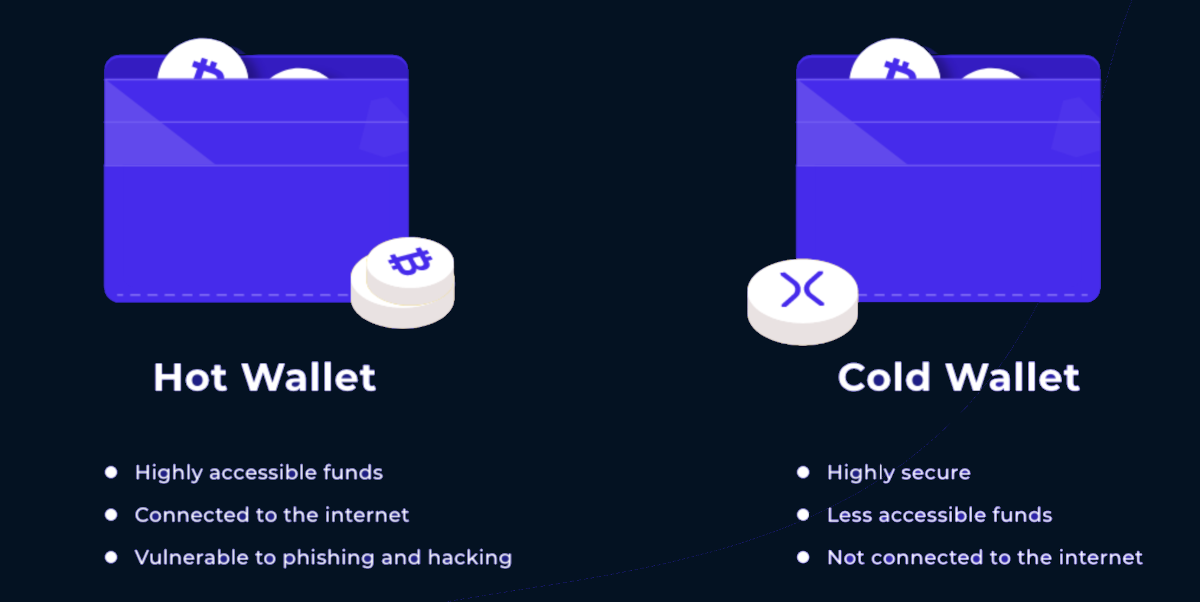
Many people make use of both – having the core of their holdings on a hardware wallet and keeping a little on a cryptocurrency wallet app or hot wallet for regular use. This approach is probably the best balance for most users, but of course, only YOU know which is the right option for YOU.
We hope you found this article helpful, and once you’ve set up your wallet and you’re ready to make your first deposit and start playing our epic casino games at Punt, don’t forget to claim your 6 BTC and $25 Free Chip Welcome Package – that should get your wallet filled in no time!
Jordan Huxley
Born on a blockchain with “HODL” as a middle name, the crypto-savvy Jordan Huxley guides our readers through the digital world of crypto with insightful guides and informative content, unveiling the power of crypto in his own, unique way. Get the latest updates on blockchain-related tech, advancements, news, and events with Jordan and our team of crypto gambling gurus on the Punt Casino Blog.















